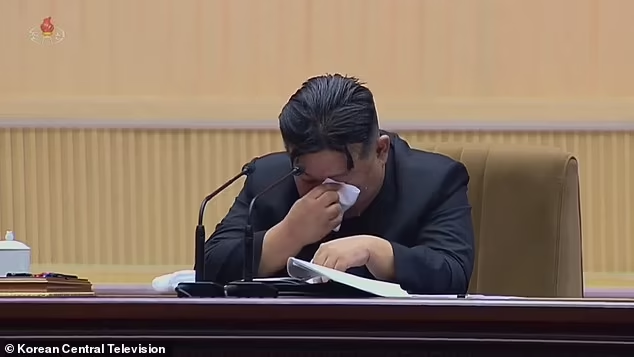North Korean dictator, Kim Jong Un broke down in tears in front of thousands of women as he called on women to have more children, saying that it was their duty to halt the country’s declining birth rate.
In his emotional plea, Kim Jong Un is seen dabbing his eyes with a handkerchief while addressing thousands of women at a National Mothers’ Meeting in Pyongyang on Sunday, December 3.
‘Preventing a decline in birth rates and good childcare are all of our housekeeping duties we need to handle while working with mothers,’ Kim said at the event, while also urging them to instil the values of his communist party in their children.
The women who attended the event dressed in traditional multi-coloured garments also wept along with their leader.
The event – the first National Mothers’ Meeting in 11 years – was put on amid a fall in the isolationist state’s birth rate, which has prompted concern among the DPRK’s (Democratic People’s Republic of Korea) top officials.
Addressing the audience as ‘Dear Mothers’, Kim told them ‘we are confronted with a host of social tasks that our mothers should join to tackle’.
‘These tasks,’ he said, ‘include bringing up their children so that they will steadfastly carry forward our revolution, eliminating the recently-increasing non-socialist practices, promoting family harmony and social unity, establishing a sound way of cultural and moral life, making the communist virtues and traits of helping and leading one another forward prevail over our society, stopping the declining birth rate, and taking good care of children and educating them effectively.
‘These belong to our common family affairs, which we need to deal with by joining hands with our mothers,’ he added.
He went on to say that ‘in view of our mothers’ position and role in their families and society’, his government viewed the meeting of mothers as ‘no less important than a party congress or a plenary meeting of the Party Central Committee.’
According to reports, the last census North Korea released was in 2008, and it showed its population stood at 24 million. Estimates now suggest that 25.7 million people inhabit the country.

